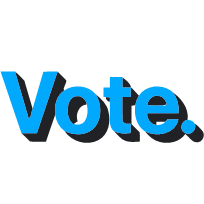Socialism is when the government does stuff, and the more stuff the government does, the more socialist it is. If it does a whole lotta stuff it’s communism <- This is you, but unironically. Educate yourself on the subject of which you claim knowledge.
That’s not a socialist state. It’s a capitalist state with welfare. If the political structure of the state itself has not been reworked to put the workers in power what you’re describing is just a state where the bourgeoisie (who control power) have decided to do welfare, usually for their own benefit such as reducing revolutionary energy by providing the workers with concessions (the welfare state). That is social democracy.
You do not have socialism without overthrowing the hierarchy that places the bourgeoisie as the ruling class:
Capitalism = Capitalists in power. Proles repressed.
Socialism = Proletariat in power. Capitalists repressed.
Communism = No more classes, only 1 class because the bourgeoisie have been completely phased out.
Representative “democracy” alienates the common man from the political process while maintaining a semblance of democracy. For this reason it is the ideal political form for capitalism, an economic system which alienates power from the masses and concentrates it in the hands of a few.
Class interests are the primary axis on which all political activity turns. Getting the working class to
does not help them, it helps those in power.
First step is abolishing wage labor and private property. Transitional political forms take on some form of direct democracy, probably something similar to soviet councils.
Capitalism is the state controlled by the capital owners with the workers repressed.
Socialism is the state controlled by the workers with the capital owners repressed.
They are literally hard opposites. One is a bourgeoise-state and the other is a proletarian-state.
Capitalism is where everything is owned by an individual
Socialism is where only the means of production are owned by the state, but the individual still has private properties
Communism is where everything is owned by the state
You are impressingly wrong
Socialism is when the government does stuff, and the more stuff the government does, the more socialist it is. If it does a whole lotta stuff it’s communism <- This is you, but unironically. Educate yourself on the subject of which you claim knowledge.
This is not correct, I encourage you to do some more reading about how coats are made if you’d like to understand this better.
I learned that “capitalism” is an economic system, not a system of government.
So you could have a socialist state that funds essentials like healthcare and transportation through taxes with a market (capitalist) economy.
That’s not a socialist state. It’s a capitalist state with welfare. If the political structure of the state itself has not been reworked to put the workers in power what you’re describing is just a state where the bourgeoisie (who control power) have decided to do welfare, usually for their own benefit such as reducing revolutionary energy by providing the workers with concessions (the welfare state). That is social democracy.
You do not have socialism without overthrowing the hierarchy that places the bourgeoisie as the ruling class:
Capitalism = Capitalists in power. Proles repressed.
Socialism = Proletariat in power. Capitalists repressed.
Communism = No more classes, only 1 class because the bourgeoisie have been completely phased out.
All of this sounds at odds with representative democracy. What political system would you see working with socialism as you describe it?
Representative “democracy” alienates the common man from the political process while maintaining a semblance of democracy. For this reason it is the ideal political form for capitalism, an economic system which alienates power from the masses and concentrates it in the hands of a few.
Class interests are the primary axis on which all political activity turns. Getting the working class to does not help them, it helps those in power.
does not help them, it helps those in power.
…and so what do you have instead?
First step is abolishing wage labor and private property. Transitional political forms take on some form of direct democracy, probably something similar to soviet councils.